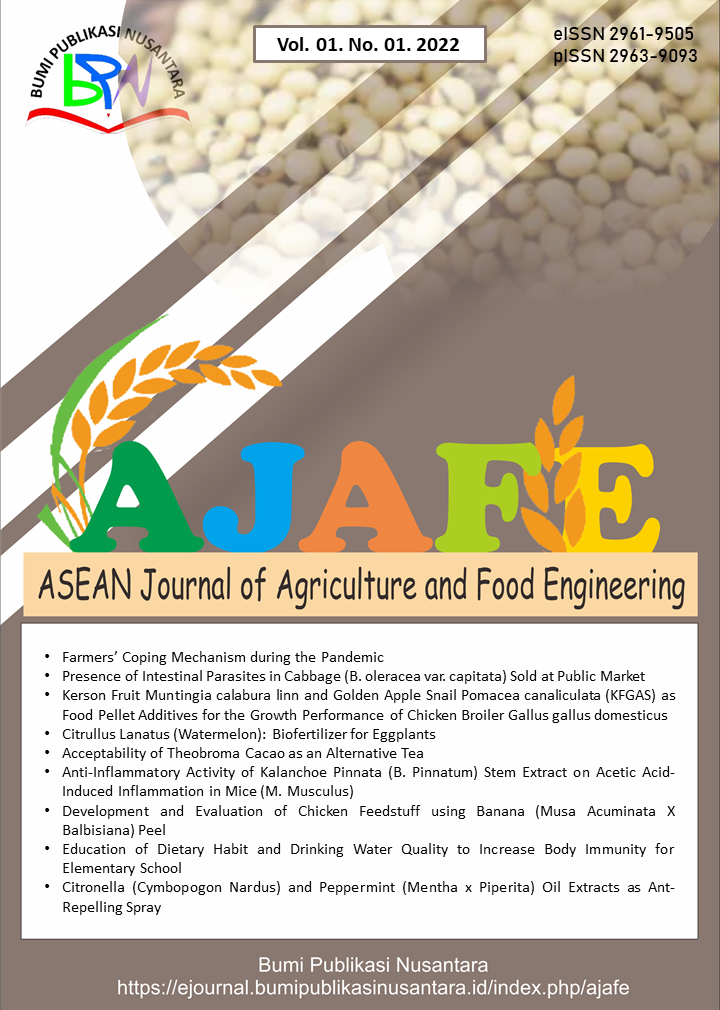Enhancing Student Health and Academic Performance through Integrated Nutrition and Science Education: A Case Study from a Public Elementary School
 ),
),
(1) University of Rizal System
 Corresponding Author
Corresponding Author
Abstract
Keywords
References
Almulla, M. A. (2020). The effectiveness of the project-based learning (PBL) approach as a way to engage students in learning. Sage Open, 10(3), 1-15.
Asio, J. P., and Jimenez, D. F. (2020). Effect of remediation activities on Grade 5 pupils’ academic performance in Technology and Livelihood Education (TLE). Pedagogical Research, 5(4), em0075.
Cala, R. F. (2019). Integrating graphic organizers in lesson packages and its effect on students’ levels of conceptual understanding. International Journal of Secondary Education, 7(4), 89-100.
Gwelo, N. B., Sumankuuro, J., Akintola, O., and Brieger, W. R. (2023). Factors associated with underweight, overweight, stunting and wasting among primary school-going children participating in a school health initiative in South Africa. BMC nutrition, 9(1), 119.
Haywood, X., and Pienaar, A. E. (2021). Long-term influences of stunting, being underweight, and thinness on the academic performance of primary school girls: The NW-child study. International Journal of Environmental Research and Public Health, 18(17), 8973.
Pereira, T., and Freire, T. (2021). Positive youth development in the context of climate change. Frontier Psychology, 12, 78-90.
Rasoloarison, H. R., and Rakotonirina, M. C. (2020). Possible causalities between malnutrition and academic performances among primary schoolchildren: A cross-sectional study in rural Madagascar. BMJ Nutrition, Prevention and Health, 18-29.
Razzaq, A., Qaisar, S., and Javed, Z. (2022). Elementary school teachers' perceptions toward the use of graphic organizers. Global Educational Studies Review, 7(2), 63-65.
Saldana, J. B., and Domanog, J. V. T. (2024). Implementation of Youth for Environment in School Organization (YES-O) in the Secondary Schools and Its Impact on Science Learning Progress. Studies in Philosophy of Science and Education, 5(1), 1-17.
Shinde, S., Wang, D., and Fawzi, W. W. (2021). School-based interventions targeting double burden of malnutrition and educational outcomes of adolescents in low-and middle-income countries: protocol for a systematic review. Systematic Reviews, 10, 1-11.
Article Metrics
Abstract View : 809 times
: 809 times Download : 345 times
Download : 345 times
Refbacks
- There are currently no refbacks.
Copyright (c) 2025 Bumi Publikasi Nusantara

This work is licensed under a Creative Commons Attribution-ShareAlike 4.0 International License.



_publication_ethics.png)



